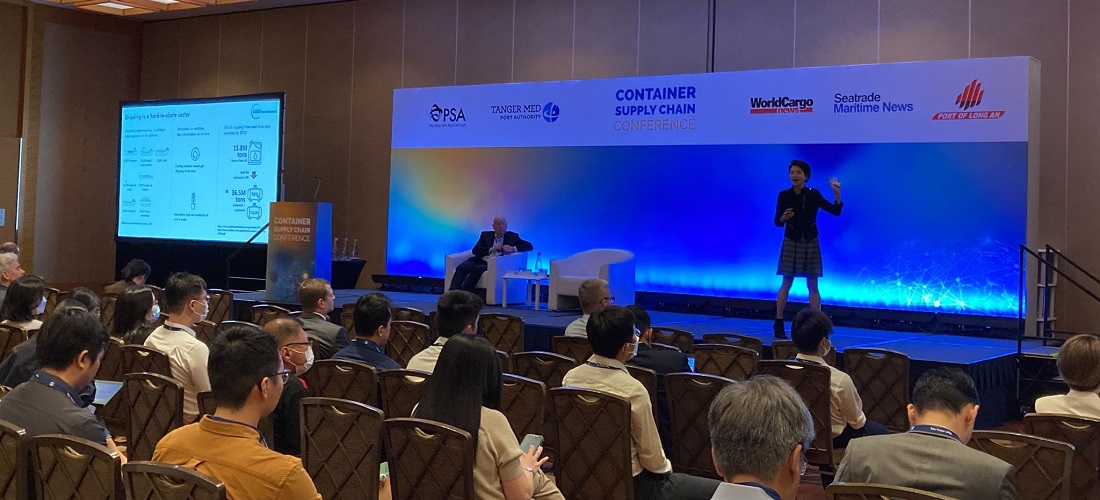
TOC Asia concludes with holistic approach to decarbonization across supply chain key
Nov, 30, 2022 Posted by Sylvia SchandertWeek 202248
TOC Asia, produced by TOC Worldwide, returned to the Marina Bay Sands in Singapore today after a two-year absence.Taking place from 29-30 November, the event brought together APAC’s port and container supply chain community.
Delivering a keynote speech under the topic of “Singapore – A Global Enabler for Maritime Trade”, PSA International’s Group CEO – Tan Chong Meng, described how the company had shifted from a network of ports to networked corridors to offering solutions. He discussed the interdependency of different parties in the supply chain in detail and how reducing emissions will drive this further and how PSA’s role in this.
“We have now restructured our business into two classes, one is ports and one cargo solutions. Within cargo solutions we make use of ports as a fundamental hard resource, we add facilities that we call port adjacencies, we are building customer adjacencies that are much more global than the portfolio of ports that we have and connect that digitally.”
The session ‘Market Outlook: How is the Industry Evolving to Become More Resilient?’ focused heavily on the outlook for the container shipping sector, with port congestion reducing and spot rates falling by 77% from their peak according to Jayendu Krishna, Director Drewry Maritime Advisors. With falling demand Drewry now believes a previous forecast that global container volumes would breach 1bn teu in 2026 may now be missed.
Alan Murphy CEO and Founder of Sea-Intelligence painted two possible scenarios ahead for shipping lines – a managed decline with lay-ups starting now or a rate war. “What I personally think is much more likely is headed into we’re in for a rate war,” he said, putting an 80% chance on a rate war.
On Day 2, delivering a keynote speech under the title of “Challenges & Opportunities for Maritime Decarbonisation”, Prof Lynn Loo, CEO of the Global Centre for Maritime Decarbonisation (GCMD) put a focus on developing landside infrastructure for green fuels to decarbonise shipping. “There are no green corridors without green infrastructure. The green corridors need to be anchored by ports and infrastructure, so it’s really important for us to start thinking about the landside of shipping.”
It’s estimated that decarbonising shipping will cost $3trn, of which some 80% will be related to production, supply and landside infrastructure for green fuels.
Moderator Paul Gallie, Director of Business Development for AP Moller Capital, noted that in the past ports only required facilities to bunker heavy fuel oil (HFO), however, in future they would need infrastructure for multiple fuel types such as ammonia and methanol.
In the second session “‘Energy Transition & Sustainability: Spotlight on Shipping Lines & Cargo Owners’” Shane Balani, Decarbonisation Consultant for Lloyd’s Register and Dr Shahrin Osman, Head of Maritime Advisory APAC both said that a key challenge in decarbonising shipping was the uncertainty over the type of fuel that would be used in the future.
Balani noted, “There’s a huge amount risk in any transition in any industry”, and that green corridors would go some way to de-risking that transition.
-
Other Logistics
Aug, 04, 2021
0
Investments in railways may increase demand for port terminals in the Northeast
-
Trade Regulations
Apr, 19, 2020
0
IRS extends deadline for presentation of Certificates of Origin on imports
-
Economy
Jun, 26, 2024
0
In May, Paraguay conquered nine new markets for exports
-
Grains
May, 29, 2024
0
Reuters: Argentina on track to start corn exports to China in July – grains chamber head


